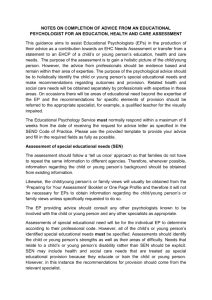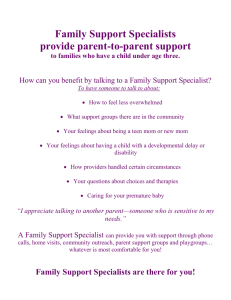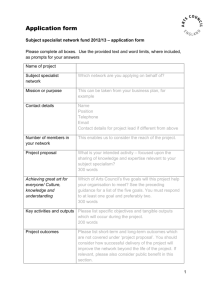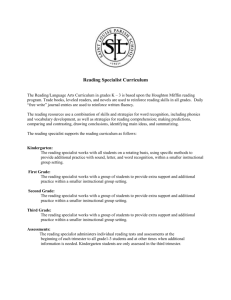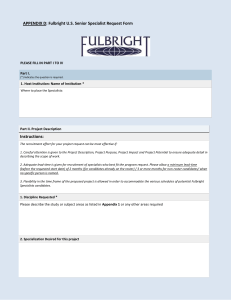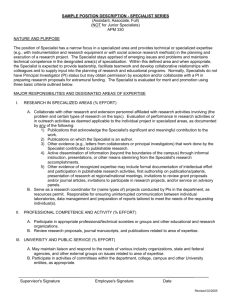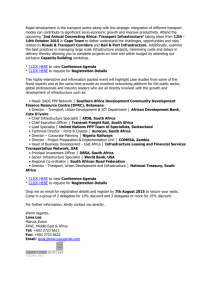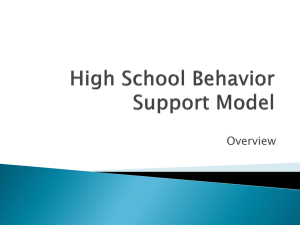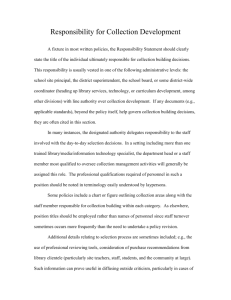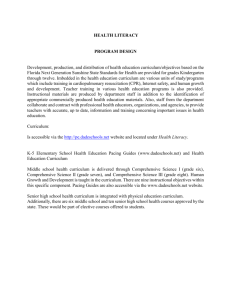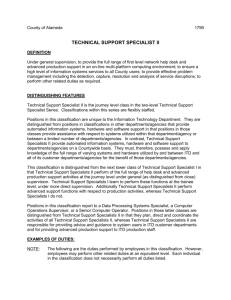Guidance
advertisement
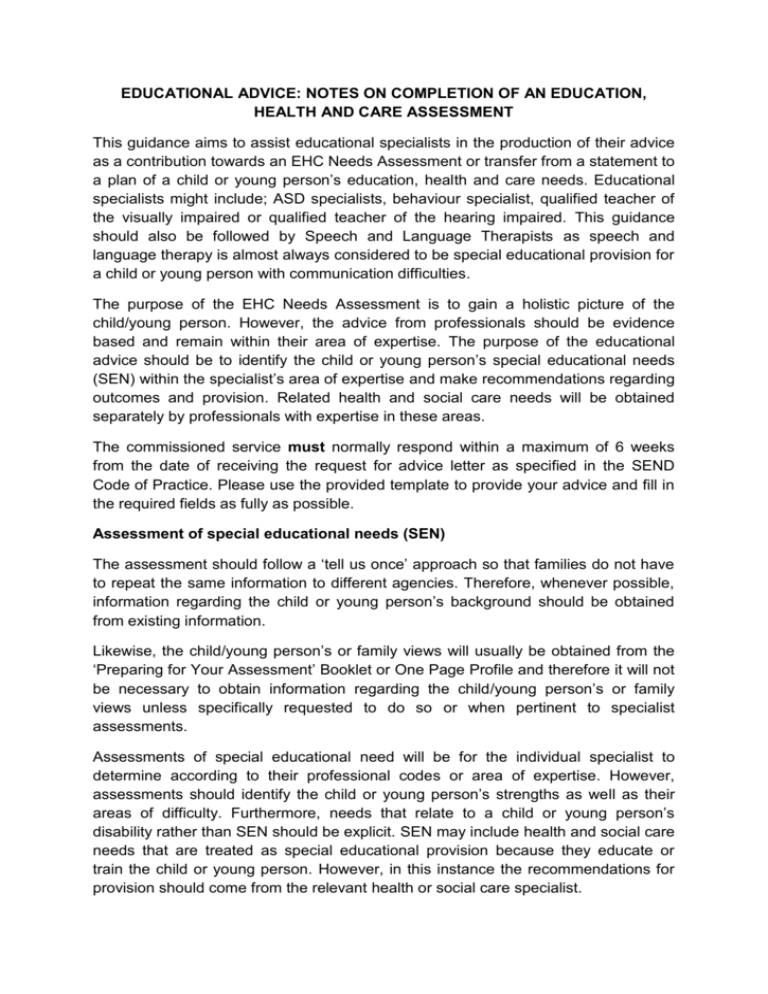
EDUCATIONAL ADVICE: NOTES ON COMPLETION OF AN EDUCATION, HEALTH AND CARE ASSESSMENT This guidance aims to assist educational specialists in the production of their advice as a contribution towards an EHC Needs Assessment or transfer from a statement to a plan of a child or young person’s education, health and care needs. Educational specialists might include; ASD specialists, behaviour specialist, qualified teacher of the visually impaired or qualified teacher of the hearing impaired. This guidance should also be followed by Speech and Language Therapists as speech and language therapy is almost always considered to be special educational provision for a child or young person with communication difficulties. The purpose of the EHC Needs Assessment is to gain a holistic picture of the child/young person. However, the advice from professionals should be evidence based and remain within their area of expertise. The purpose of the educational advice should be to identify the child or young person’s special educational needs (SEN) within the specialist’s area of expertise and make recommendations regarding outcomes and provision. Related health and social care needs will be obtained separately by professionals with expertise in these areas. The commissioned service must normally respond within a maximum of 6 weeks from the date of receiving the request for advice letter as specified in the SEND Code of Practice. Please use the provided template to provide your advice and fill in the required fields as fully as possible. Assessment of special educational needs (SEN) The assessment should follow a ‘tell us once’ approach so that families do not have to repeat the same information to different agencies. Therefore, whenever possible, information regarding the child or young person’s background should be obtained from existing information. Likewise, the child/young person’s or family views will usually be obtained from the ‘Preparing for Your Assessment’ Booklet or One Page Profile and therefore it will not be necessary to obtain information regarding the child/young person’s or family views unless specifically requested to do so or when pertinent to specialist assessments. Assessments of special educational need will be for the individual specialist to determine according to their professional codes or area of expertise. However, assessments should identify the child or young person’s strengths as well as their areas of difficulty. Furthermore, needs that relate to a child or young person’s disability rather than SEN should be explicit. SEN may include health and social care needs that are treated as special educational provision because they educate or train the child or young person. However, in this instance the recommendations for provision should come from the relevant health or social care specialist. Descriptions of special educational needs should specify the child or young person’s learning difficulties rather than any development objectives or recommended provision which should be reflected in the subsequent sections. Outcomes It should be noted that attendance will be required at an Outcomes meeting (or Transfer review) as part of the statutory assessment. One purpose of this meeting will be to devise long term person centred outcomes, in conjunction with the child and parents/carers. Any outcomes devised should then form part of the advice. Recommendations for special educational provision should be focussed on the child or young person achieving the agreed outcomes. If an Educational specialist considers that additional outcomes, not identified at the Outcomes meeting should be specified then it is entirely appropriate to do so. However, it should be made explicit which outcomes are being recommended on the basis of the practitioner’s professional judgement and which were devised at the Outcomes meeting. Moreover, it would be best practice for these proposed outcomes to have been raised and discussed at the Outcomes meeting. Guidance regarding outcomes is enclosed separately. The special educational provision required by the child or young person Provision must be detailed and specific and should normally be quantified, for example, in terms of the type, hours and frequency of support and level of expertise. Provision must be specified for each and every outcome identified. It should be clear how the provision will support achievement of the outcomes. Where health or social care provision educates or trains a child or young person, it should be noted. However, this should only be included if supported through the evidence of a specialist with the relevant expertise and recommendations for provision should be made by the appropriate specialist e.g. speech and language therapy. There should be clarity as to how advice and information gathered has informed the provision specified. In some cases, flexibility will be required to meet the changing needs of the child or young person. In these instances the reasons for this should be explicit. Recommendations should specify: o any appropriate facilities and equipment, staffing arrangements and curriculum o any appropriate modifications to the application of the National Curriculum, where relevant o any appropriate exclusions from the application of the National Curriculum or the course being studied in a post-16 setting, in detail, and the provision which it is proposed to substitute for any such exclusions in order to maintain a balanced and broadly based curriculum There should be no recommendations regarding type of school or educational setting. Whilst this can be discussed, if appropriate, there should be no content which in any way biases or hinders the LA’s discretion in making decisions regarding the type of school or setting in which the child is educated. Please make sure that your report is signed and dated
